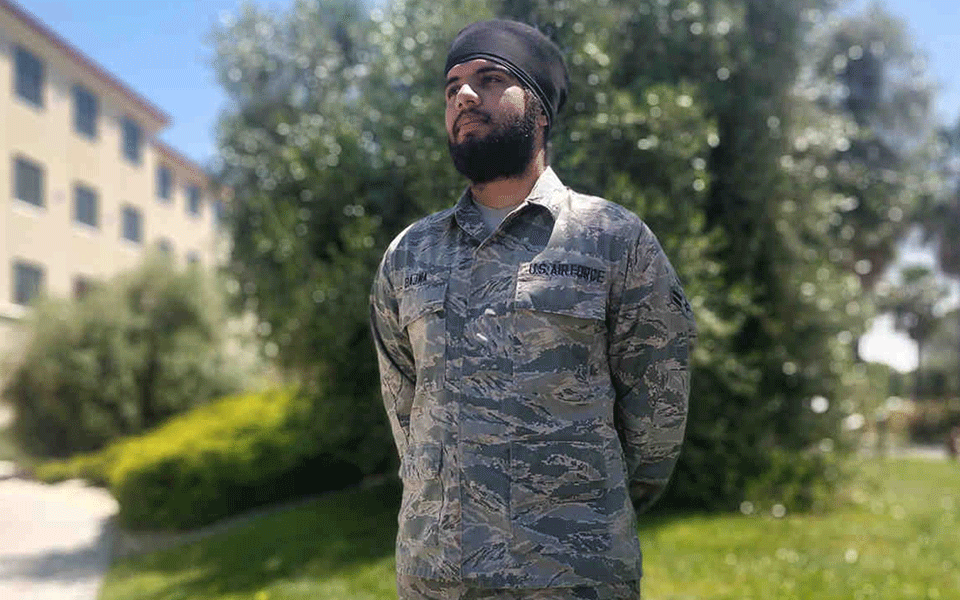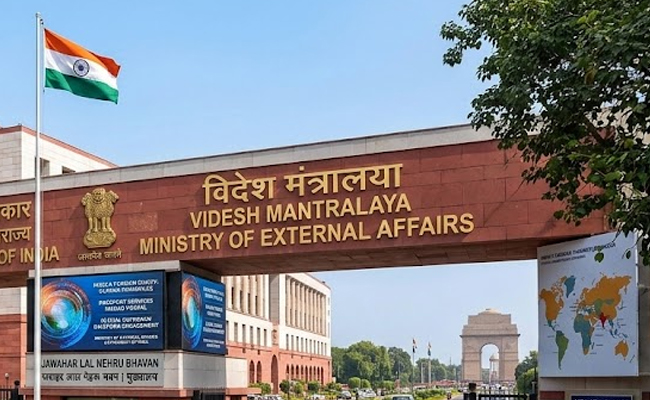Washington: A Sikh airman has been allowed by the United States Air Force to serve with a beard, turban and unshorn hair, making him the first active-duty airman to be granted such a religious accommodation.
Airman Harpreetinder Singh, who joined the Air Force in 2017, was unable to follow the practice due to the military branch's grooming and dress codes.
The Air Force granted him an accommodation after Bajwa gained representation from the Sikh American Veterans Alliance, and the American Civil Liberties Union (ACLU), NBC news reported.
Bajwa, a crew chief at McChord Air Force Base, Washington, is now the first active airman who has been authorised to adhere to Sikh religious grooming and dress principles while serving in the Air Force.
"I'm overjoyed that the Air Force has granted my religious accommodation, said Bajwa. "Today, I feel that my country has embraced my Sikh heritage, and I will be forever grateful for this opportunity," he said.
Bajwa says be initially asked if he could request a waiver during tech training a year ago in Charleston, South Carolina, and said he was never told "no" by leadership.
"I'm extremely happy I can practice my faith and serve my country," said Bajwa. A first-generation American, Bajwa was born to an immigrant family.
In 2016, Captain Simratpal Singh, a decorated Sikh-American officer and combat veteran, received a long-term religious accommodation from the US Army to serve with long hair, a beard, and turban. The Army updated its regulations the following year directing commanders to allow accommodations for observant Sikhs.
Heather L Weaver, a senior staff attorney for the ACLU, praised the Air Force's decision.
"No one should have to choose between following their faith or serving their country," Weaver said.
"We're pleased that the Air Force granted our client's request, and we hope that all branches of the military come to recognize the importance of religious inclusion and diversity.
Let the Truth be known. If you read VB and like VB, please be a VB Supporter and Help us deliver the Truth to one and all.
New Delhi (PTI): The Ministry of External Affairs (MEA) has set up a control room to assist those affected by the escalating crisis in West Asia.
The MEA has said almost one crore Indian citizens live in West Asia and their safety and well-being is of "utmost priority" for New Delhi.
As the Iran-US conflict widened, the Indian embassy in Iran moved hundreds of Indian students from the Iranian capital of Tehran to safer locations.
"A Control Room has been set up in the Ministry of External Affairs in view of the current situation in West Asia and the Gulf region," the MEA said on Wednesday.
"The Control Room can be contacted from 9 am to 9 pm at: 1800118797 (Toll Free) +91 11 2301 2113, +91 11 2301 4104, +91 11 2301 7905," it added.
The US launched military strikes on Iran on February 28, killing Iranian Supreme leader Ali Khamenei.
Following the military offensive, Iran has carried out a wave of attacks mainly targeting Israel and American military bases in several Gulf countries, including the UAE, Bahrain, Kuwait, Jordan and Saudi Arabia.
The MEA on Tuesday noted that almost one crore Indian citizens live and work in the Gulf region, and their "safety and well-being is of utmost priority."
"We cannot be impervious to any development that negatively affects them," it said.
The MEA said New Delhi will continue to closely monitor the evolving situation and take relevant decisions in the national interest, adding it is in touch with the governments in the region as well as other key partners.
A Special Control Room has been set up in the Ministry of External Affairs in view of the current situation in West Asia and the Gulf region. Details are as below ⬇️
— Randhir Jaiswal (@MEAIndia) March 4, 2026
🔗 https://t.co/nK3d6SY9Pa pic.twitter.com/v2EhUI5B1x




